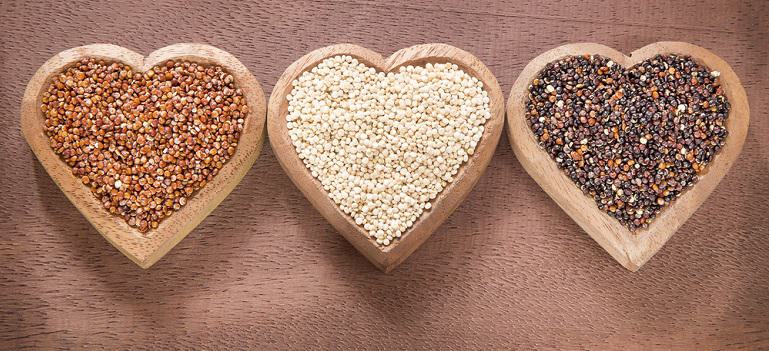


 When discussing whole grains, there are two main types: hard grains and soft grains. Generally, hard grains have a longer shelf life than soft grains. However, each will remain fresh for long periods if stored properly.
When determining how to store grains correctly, there are a few things that affect their shelf life: most notably, heat, moisture, air and insects. Staying mindful of these factors and knowing the proper care for each grain will help ensure that your grains remain as fresh as possible.
When discussing whole grains, there are two main types: hard grains and soft grains. Generally, hard grains have a longer shelf life than soft grains. However, each will remain fresh for long periods if stored properly.
When determining how to store grains correctly, there are a few things that affect their shelf life: most notably, heat, moisture, air and insects. Staying mindful of these factors and knowing the proper care for each grain will help ensure that your grains remain as fresh as possible.
 Unlike hard grains, soft grains don't have a hard outer shell to protect the seed from external factors like dirt, moisture and insects. This being so, they are more sensitive to water and high humidity climates. Like hard grains, if a soft grain seed is exposed to moisture, it will begin to germinate. When growing seeds, germination is a good thing. When storing seeds for freshness, it is not. During the germination process, the plant begins to take over the space where the seed used to live, leaving you with little to eat. Because of this, you'll want to make sure your soft grains are stored away from humidity. Due to their lack of hard outer shell, soft grains are highly susceptible to bugs, making airtight storage containers a must.
Unlike hard grains, soft grains don't have a hard outer shell to protect the seed from external factors like dirt, moisture and insects. This being so, they are more sensitive to water and high humidity climates. Like hard grains, if a soft grain seed is exposed to moisture, it will begin to germinate. When growing seeds, germination is a good thing. When storing seeds for freshness, it is not. During the germination process, the plant begins to take over the space where the seed used to live, leaving you with little to eat. Because of this, you'll want to make sure your soft grains are stored away from humidity. Due to their lack of hard outer shell, soft grains are highly susceptible to bugs, making airtight storage containers a must.